Politics
Desert X Organizers Have Ignited a Firestorm of Controversy by Launching a Saudi Arabian Edition of the Biennial
Three board members have left the organization following the move.
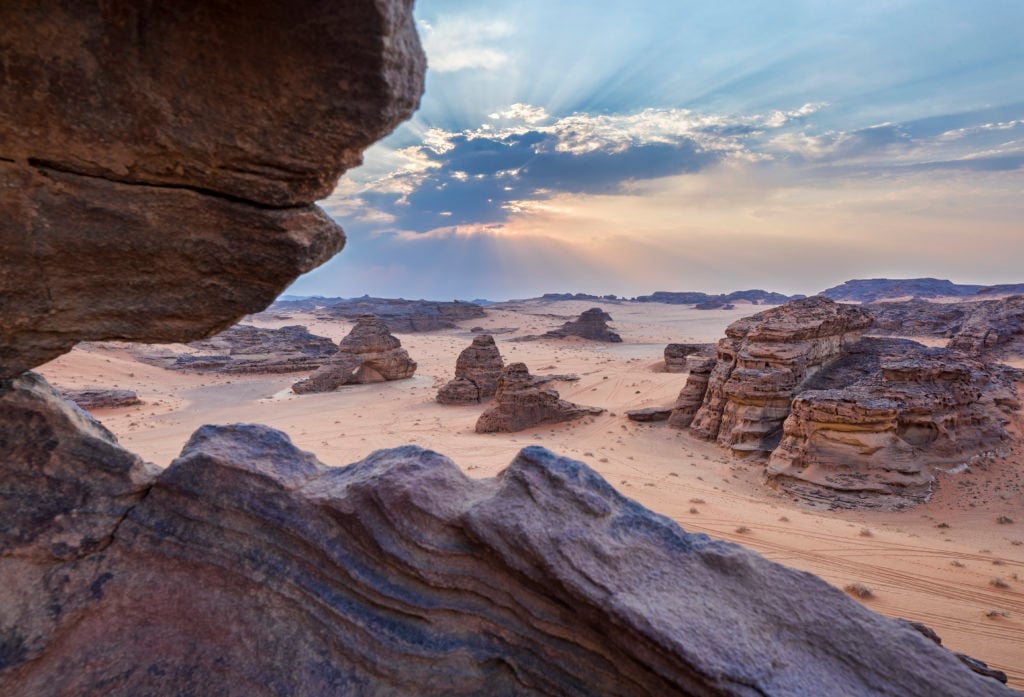
Three board members have left the organization following the move.

Catherine Wagley

Desert X, the California biennial launched in the Coachella Valley in 2017, is expanding with a new edition in Saudi Arabia in 2020—a move that has prompted three of the organization’s 14 board members to resign in protest.
Artist Ed Ruscha, art historian and curator Yael Lipschutz, and philanthropist Tristan Milanovich have left their positions as biennial advisors, citing human rights abuses in the oil-rich kingdom.
“I resigned because I felt like Desert X no longer reflected my humanitarian values,” Lipschutz tells artnet News. “I don’t want to aid in rebranding Saudi Arabia as a somehow enlightened, credible government.”
The partnership between the biennial and the kingdom was announced almost exactly a year to the day after the murder of dissident Saudi journalist Jamal Khashoggi in the Saudi consulate in Istanbul. The CIA has accused Saudi crown prince Mohammed Bin Salman, known as MBS, of ordering the killing, and a United Nations report released in July also holds Saudi Arabia responsible. MBS has denied any involvement.
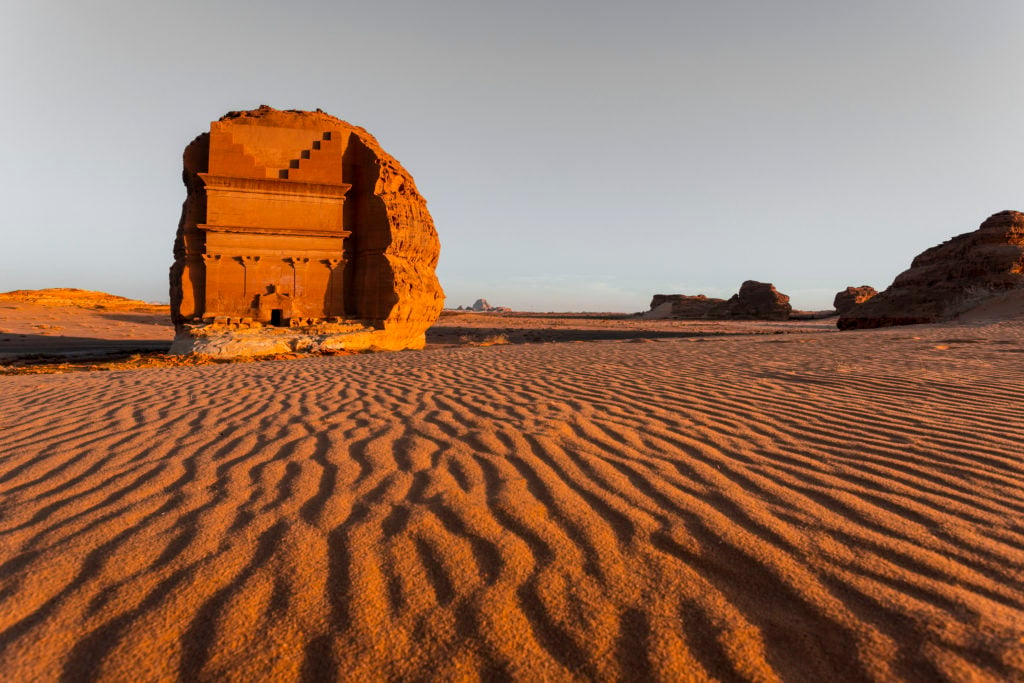
Al-Ula is home to the ancient city of Hegra, a UNESCO World Heritage Site. Image courtesy of the Royal Commission for Al-Ula.
The exhibition, which will be organized by Desert X artistic director Neville Wakefield and Saudi curators Raneem Farsi and Aya Alireza, is due to take place from January 31 to March 7. It will include large-scale works installed in a desert landscape defined by the remnants of an ancient city.
Susan Davis, the founder and board president of Desert X, says the organization’s decision to launch the new edition came after sustained conversations between herself, Wakefield, and a Saudi artist who expressed interest in the show.
“We made the decision as a board that we thought this was the right thing to do,” she says, adding that even before the inaugural edition of the show in 2017, there were talks of arranging “desert-to-desert conversations. We were talking about this over the course of the last several years, so when this opportunity presented itself, we engaged in that conversation.”
Davis says “our so-called Western perception is very different from the reality” of the kingdom. She notes that two of the Saudi edition’s curators are women, and that many other women work for the Royal Commission for Al-Ula, which is funding the event. “No country is homogeneous today, and we were very interested in engaging artist-to-artist conversations,” she says.
Before moving forward with the plan, Davis says she and Wakefield reached out to organizations that had severed ties with Saudi partners to ask about their experiences. She says these groups are probably “just biding their time until they engage again.”
They also reached out to artists who they planned to include in the new edition to ask their advice on whether to move ahead. “From my knowledge, virtually every artist said that it’s more important to engage than isolate,” she says.
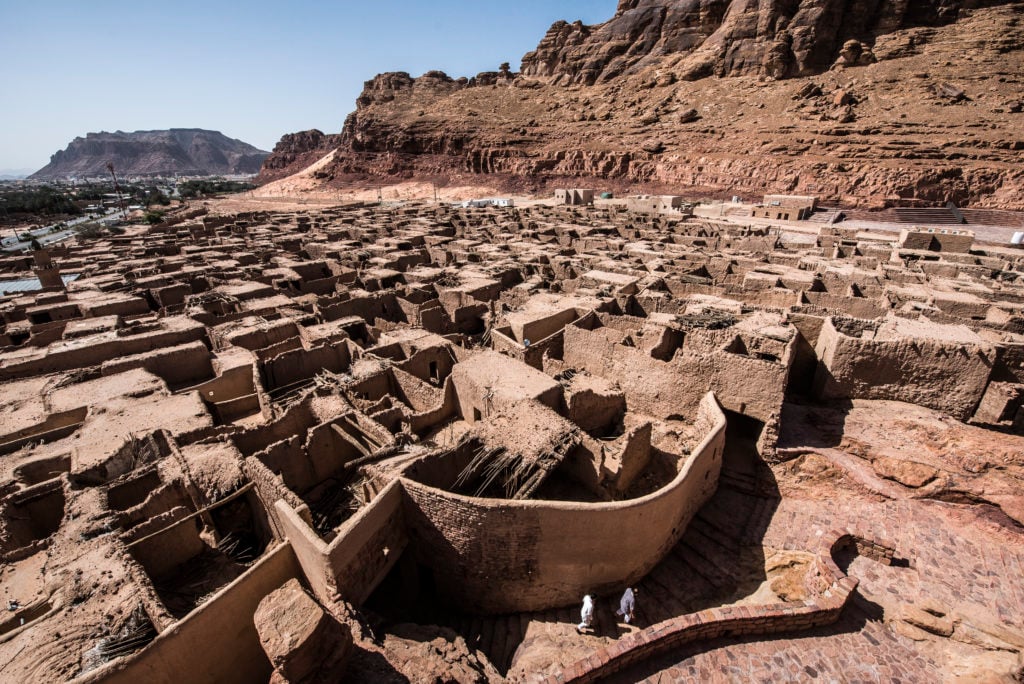
The Old Town of Al-Ula. Image courtesy of the Royal Commission for Al-Ula.
Artists who have visited the Kingdom ahead of the project include Lita Albuquerque, Sherin Guirguis, and the Danish collective Superflex.
“I think art transcends a lot of political issues,” Albuquerque told the Los Angeles Times. Guirguis said she was interested in “exploring what it means to make art under these kinds of conditions.”
But Kade L. Twist, who along with Cristobal Martinez makes up the collective Postcommodity, which exhibited in the 2019 edition, says no one from Desert X contacted him or Martinez about the Saudi partnership. Twist says the expansion of the biennial speaks to the art world’s lack of accountability.
“It’s an unregulated market, it’s an unregulated industry,” he says. “Curators are self-declared, artists are self-declared, and there’s very little oversight as to where money comes from and how it’s spent.”
“We would never exhibit with any form of Desert X again,” he adds.
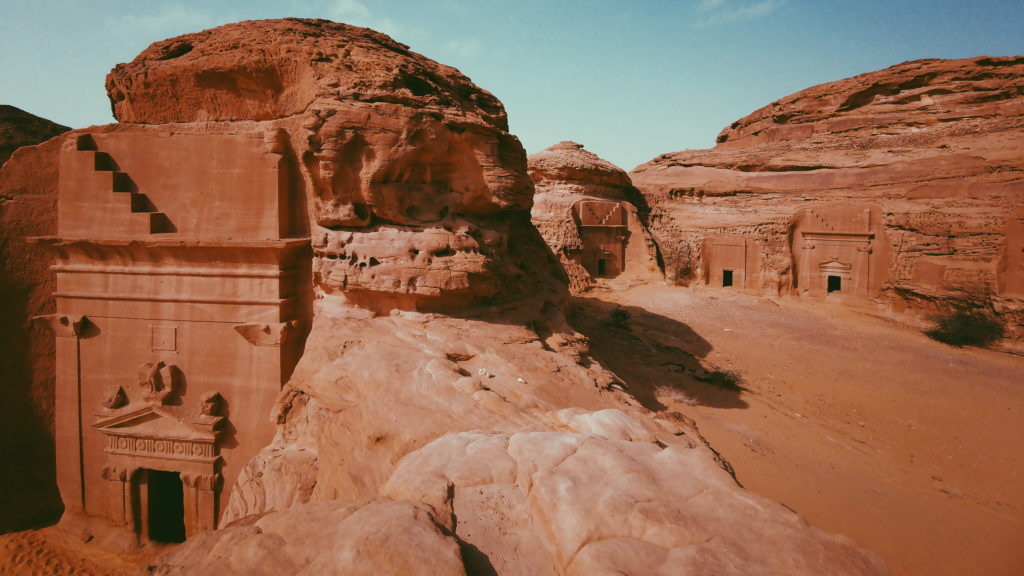
Hegra in Al-Ula. Image courtesy of the Royal Commission for Al-Ula.
The Saudi state is funding Desert X Al-Ula, as the show will be known, as part of Vision 2030, an initiative spearheaded by MBS with the intention of diversifying the country’s economy. Encouraging tourism is one prong of the initiative; another is the pursuit of international partnerships. In December 2017, a group of high-ranking museum officials, including Glenn Lowry, the director of the Museum of Modern Art, visited Saudi Arabia on a trip sponsored by the kingdom to preview the newly completed King Abdulaziz Center for World Culture.
While Saudi Arabia is widely condemned for human rights abuses inside the kingdom, the grisly assassination of Khashoggi, a Washington Post columnist, struck a chord in the West. Since his murder, institutions have faced increased scrutiny for accepting Saudi money, which led the Brooklyn Museum to announce that it would reject promised Saudi funds for its forthcoming exhibition, “Syria: Then and Now.”
The new Saudi edition is now testing public perceptions of Desert X, which received largely positive press for its 2019 edition. Los Angeles Times critic Christopher Knight called it an “unusually strong outing.”
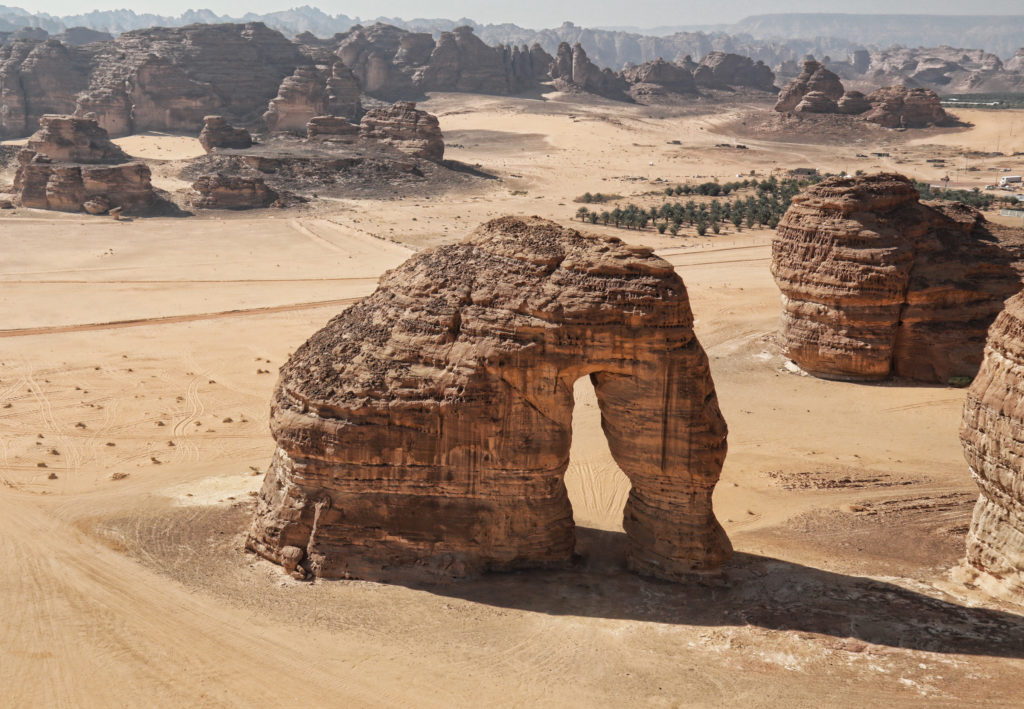
Elephant Rock, AlUla, image courtesy of RCU. Image courtesy of the Royal Commission for Al-Ula.
But local activists and community organizers raised separate concerns. Environmental scholar and writer Ruth Nolan wrote on Facebook that the art installations had done “irreparable damage” to “desert flora and fauna” and wrote in an op-ed for the Desert Sun that the show evinced “a land grab mentality that evokes the worst of the California Gold Rush.”
Meanwhile, some artists complained of a lack of organization and direction. Twist, the member of Postcommodity, said his collective fronted the $22,000 necessary to fund their installation in Palm Springs, and were only reimbursed in July after they involved a lawyer. A Desert X spokesperson says that according to the organization’s records, Postcommodity was paid in full before July.
“They don’t even have the capacity as an organization to do what they’re already doing,” Twist says. “They’ve demonstrated a lack of capacity to support the artists and a lack of professionalism.”
The artist list for the Saudi edition is yet to be announced, but half the artists will be from the kingdom, while others will include previous participants from the American edition.